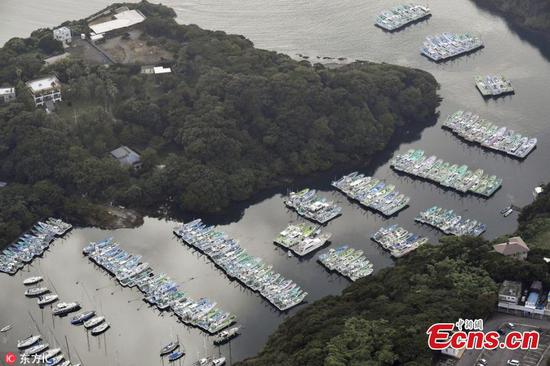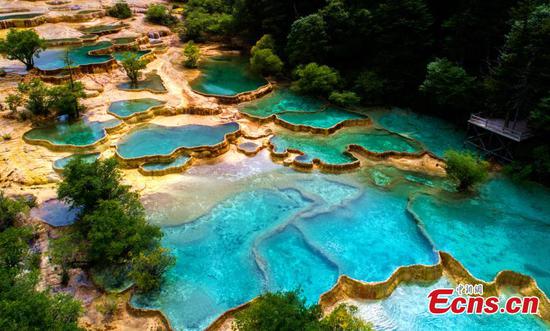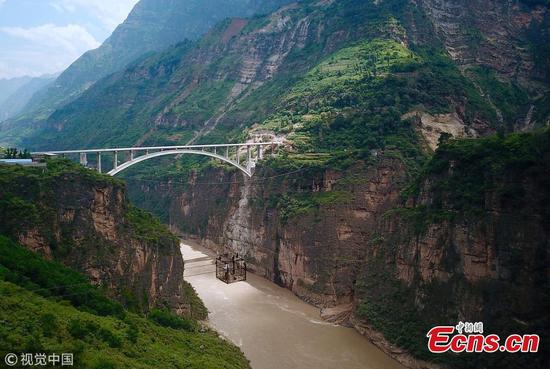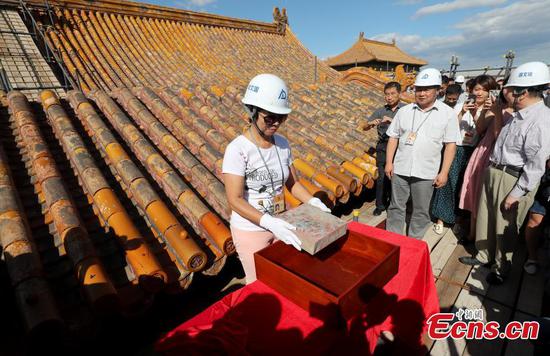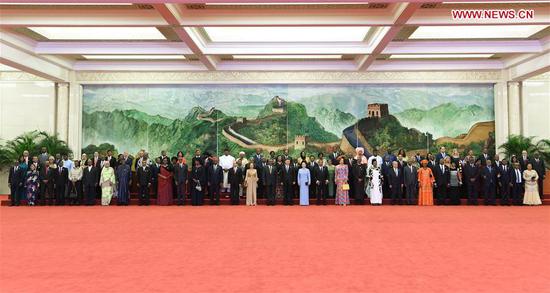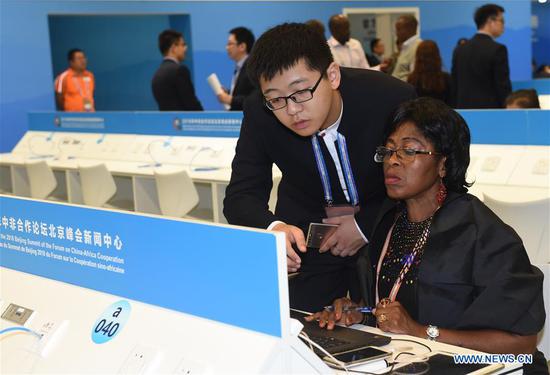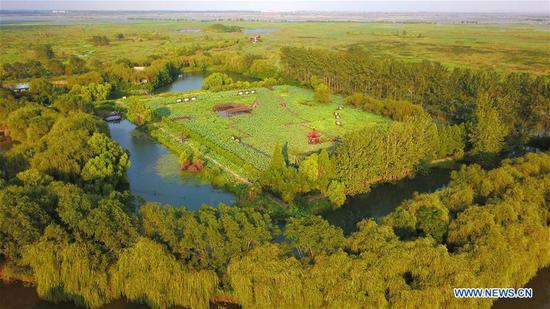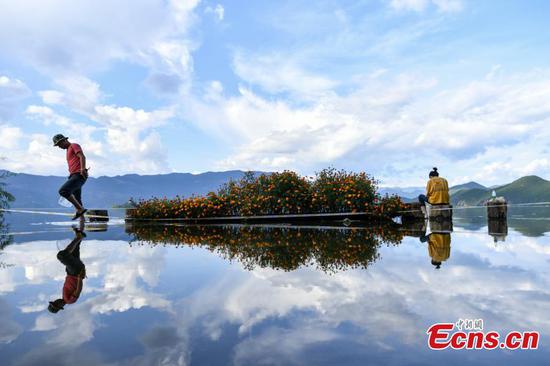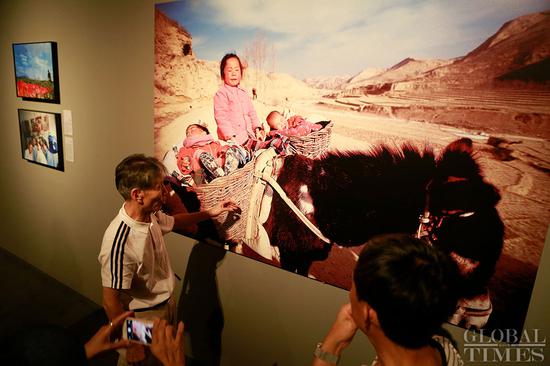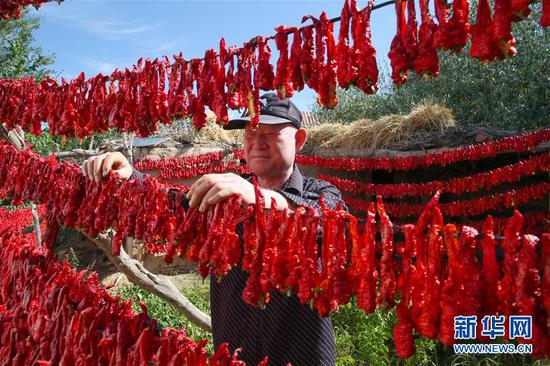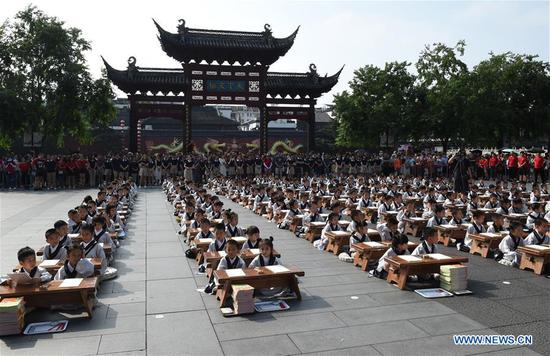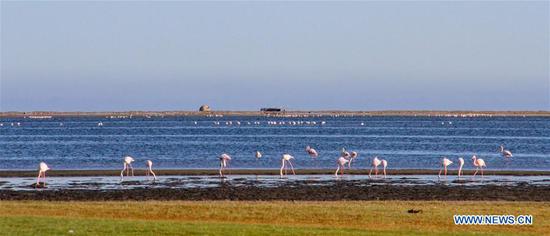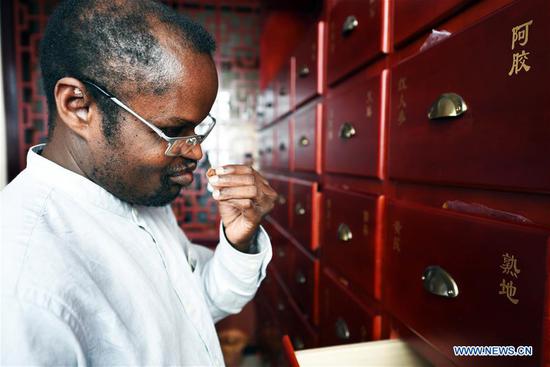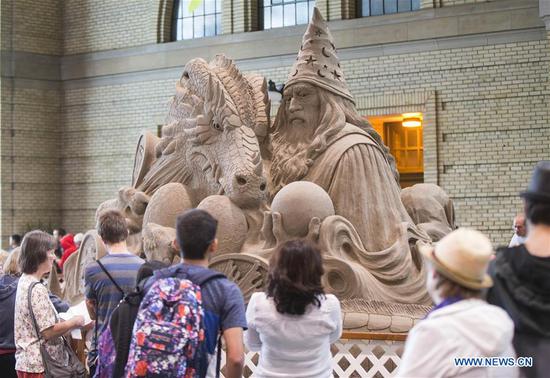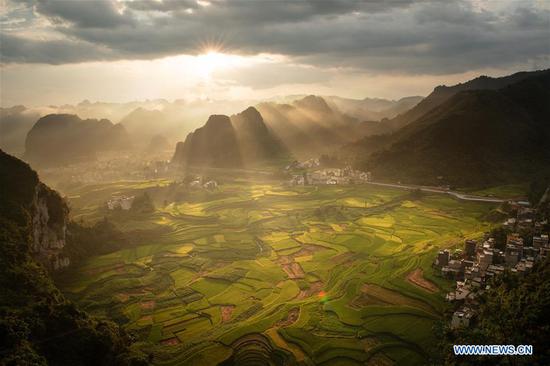The past 18 years of China-Africa relations have made some people in the Western world uneasy as they churn out various accusations against the Asian country's role on the continent.
Some Western media and politicians have repeatedly labeled China as an economic predator in Africa, claiming that China pillages natural resources, steals local jobs, wrecks havoc on the environment and has dragged the vast continent into a debt crisis.
While such claims have gained traction among those who have little knowledge about and ground experience in Africa, they are as false as they are sensational.
Facts speak louder than words, and the facts show that China is not an economic predator but rather a true development partner for African countries.
There is no denying that raw materials have been part of China-Africa trade, but overlooked is the fact that Africa has also benefited from trade with China as Africans gain access to affordable manufactured goods. Trade is largely balanced even as it rapidly expands.
It is also interesting to note that most of the natural resources in Africa are in the hands of Western-invested companies, while China only buys what its development needs.
Furthermore, thanks to Chinese investment and technology transfers, many African countries are now on a solid path of industrialization and agricultural modernization. During the colonial era, they were made into providers of raw materials and had to purchase other necessities from abroad.
China, now the largest infrastructure investor in Africa, has helped build roads and railways, water dams and power plants, and bridges and telecom towers across the continent, laying the foundation for the long-term development of Africa.
On jobs, it is absolute conjecture to claim that China's growing presence in Africa has cost locals their jobs. Research by leading global organizations shows the opposite.
A 2017 field study by McKinsey found that in some 1,000 Chinese companies operating in eight African countries, 89 percent of the employees were local. Two thirds of these companies provide on-the-job training for local employees and about half of them have set up apprentice workshops or schools.
Leading global accounting firm EY said in a report last year that Chinese investment in Africa created more than three times the number of local jobs than that of the United States in 2016 alone.
Since the introduction of the "10 cooperation plans" at the Johannesburg Summit of the Forum on China-Africa Cooperation (FOCAC) in 2015, Chinese companies have created some 900,000 jobs in Africa and provided technical or vocational training for over 200,000 people in Africa.
Consider another truth: Chinese companies intentionally hire more local workers because wages back home are rapidly rising. Importing a majority of workers from China would prove a costly endeavor.
On alleged environmental irresponsibility, it is true that some of Chinese-built roads and railways run through natural parks. But it does not mean China has no regard for wildlife.
For example, the addition of animal corridors along the jointly-built Mombasa-Nairobi railway has garnered praise from local residents and activists. Furthermore, China has brought its proven expertise on fighting desertification to Africa, where expanding deserts pose serious problems.
Providing access to clean drinking water is another example of cooperation. Besides drilling waterholes and building conservation facilities, Chinese companies have begun building water processing factories in Africa.
Setting a "debt trap" for African countries is yet another irrational claim made against China. The rising debt levels in some African countries are due to a combination of factors, including a drop in commodity prices, especially since 2014.
Data from the China Africa Research Initiative at Johns Hopkins University shows that China has provided roughly 114 billion U.S. dollars in loans to Africa from 2000-2016, which accounts for 1.8 percent of Africa's total external debt.
Chinese loans to Africa have a lower interest rate and longer repayment period compared to the market average, and these concessional loans are primarily used to build infrastructure, which promises returns and is essential for economic capacity building of African countries.
All in all, China values its relations with Africa and is walking the talk on win-win cooperation. With ties between the two sides set to strengthen in the coming years, exaggerated and fabricated claims intended to tarnish China's image in Africa will become a thing of the past.










